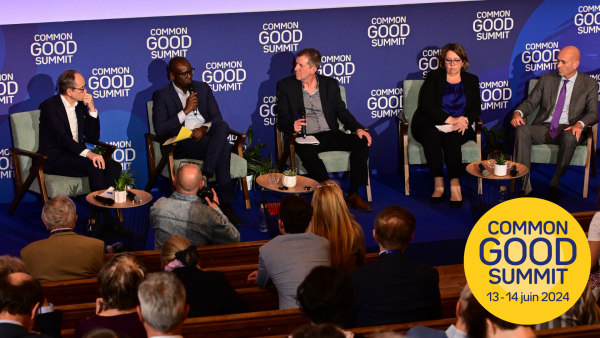
This debate took place as part of the fourth edition of the Summit of the Common Good, organised jointly by TSE, Challenges and Les Echos-Le Parisien Evénements. On 13 and 14 June 2024, economists, economic decision-makers, representatives of public authorities and civil society came together to reflect on a central question: Who will pay for the common good?
The World Bank's mission, "to end poverty on a livable planet", requires supporting investment in infrastructure to generate growth, while respecting the imperatives of climate mitigation and adaptation.
Access to efficient and affordable transport, water and sanitation, modern communication tools and clean energy provides crucial opportunities for households to learn, receive quality healthcare, access good jobs, and for businesses to operate efficiently and access markets. In addition, infrastructure generates important indirect effects through agglomeration economies in cities, access to ideas and innovation, education, health, gender equality and resilience to shocks.
To date, infrastructure needs are still enormous and we are not on track to achieve the SDGs:
- one billion people worldwide live more than two kilometers from an all-weather road,
- 685 million people have no access to electricity at home.
- 2.6 billion people have no access to the Internet,
- nearly 2 billion people do not have safe drinking water and 3.6 billion do not have safe sanitation.
To remedy this, we need to promote a fair and equitable energy transition, decarbonize transport and solve the serious problems of urban congestion, and bridge the digital divide. This will require both more resources and a better understanding of the most effective and sustainable policies.
Article published in Challenges in June 2024
© Anaëlle Raguet © Franck Foucha




